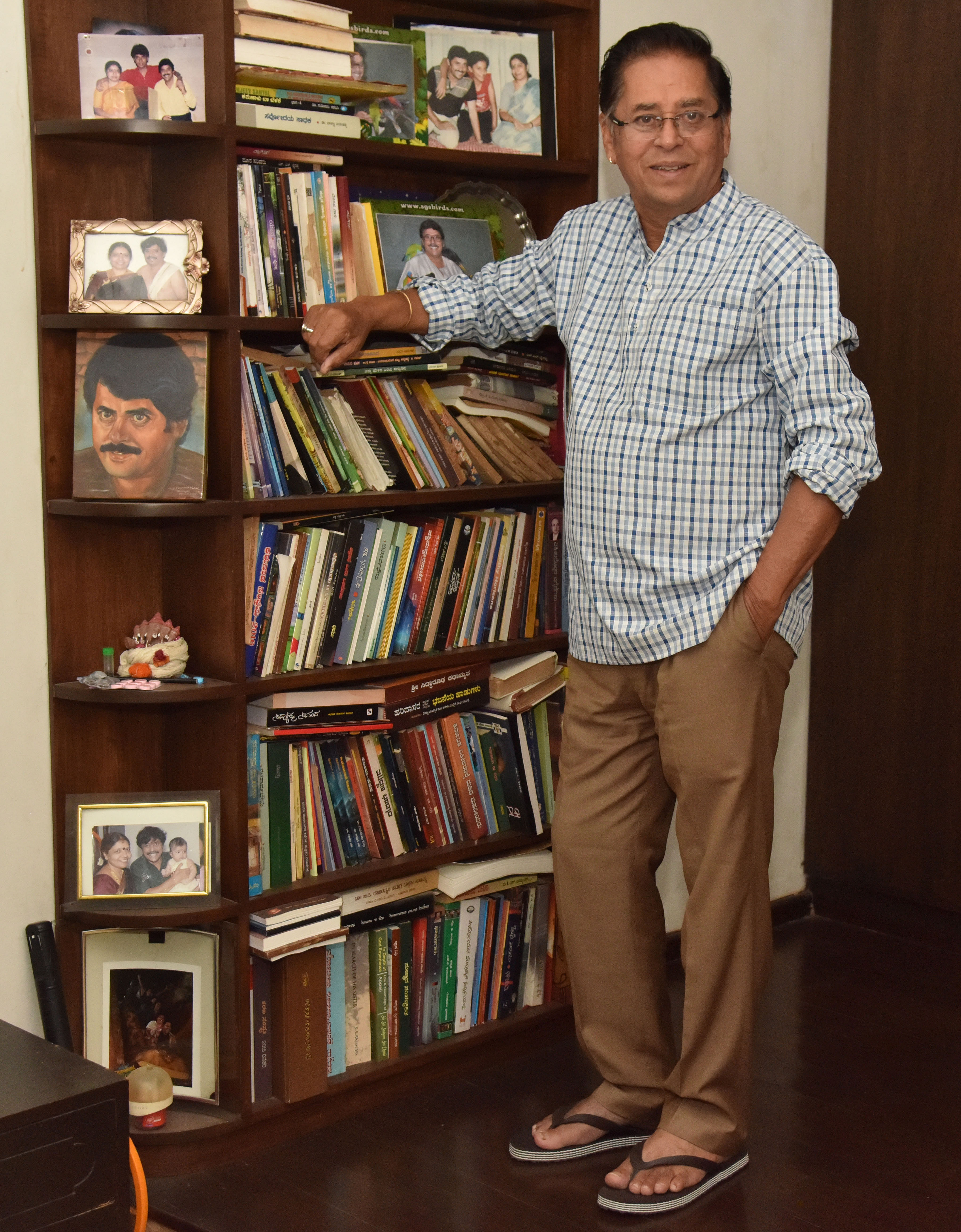
You couldn’t have missed the playboy in ‘Abachurina Post Office’, the police officer in ‘Minchina Ota’, the egotist in ‘Nodi Swamy Navirodu Hige’ and the faithful husband in ‘Parameshi Prema Prasanga.’ Ramesh Bhat, who played these characters, has completed four decades in the Kannada film industry and acted in more than 500 films.
The film actor in Ramesh Bhat bloomed late. He started off on the stage, working in Bengaluru troupes such as Spandana, Nataranga, and Benaka. And it was film director N Lakshminarayan who introduced him to cinema.
Coastal Karnataka
Ramesh Bhat says he owes his simplicity to his upbringing. “I was born in Kundapura and lived there before I moved to Bengaluru with my father in 1973. I was seven years old then,” he recalls.
People from his community in Dakshina Kannada, he says, are naturally gifted in two vocations: cooking and priesthood. “My father was a good cook. After he moved to Bengaluru, he opened a small shop. Being the eldest of nine children, I would assist him before and after school,” recalls Ramesh Bhat.
In Bengaluru, Ramesh Bhat went to a school in Gavipuram Guttahalli and later to Model High School in Chamarajpet, where the star Vishnuvardhan and his brother had studied. “After high school, I did my diploma in mechanical course from S J Polytechnic. After the course, I joined as a fitter in Kirloskar factory. But I had to discontinue it because of the paltry pay and began assisting my father,” he explains.
Turning point
His love for theatre grew. After his work at his father’s shop, he would rush off to be with a theatre group called ‘Kusuma Kalavidaru’, started by him and a group of friends. But Ramesh Bhat’s parents weren’t keen to see him become an actor. “It was unbecoming of a decent boy or girl to act in plays and movies. My father told me to assist him in earning for the family rather than go on stage,” he says.
But things changed when Ramesh Bhat won the best actor and best director award from Green Room Nani for one of his plays. Nani, a big name in theatre circles, even offered Ramesh Bhat a prominent part in one of his prime productions. “I declined, saying that my father would not approve of it. It was around that time that I started a shop called Jyothiprakash Store near National College in Basavangudi. My shop was a one-stop place for theatre artistes, college students and directors,” he says. The shop sold bakery items, badam milk, and sweets and savouries. Since his love of theatre was strong, he would put up a daily note of all the plays being staged in the city.
In the early 70s, B V Karanth was bringing amateur artistes together and experimenting with new styles of theatre. “Karanth hand-picked me for a play and that’s how I joined the Benaka troupe. There was no looking back after that. I acted in B Jayashree’s troupe. I acted with C R Simha and even Girish Karnad. I got my first big film role in ‘Abachurina Post Office’, where I was paired opposite Prema Karanth,” he says.
Around that time, Shankar Nag had come to Bengaluru from Mumbai, and was keen to start a theatre group. He roped in Ramesh Bhat, and with other friends, started a theatre group called Sanket. Together they worked on many plays including ‘Anju Mallige’ and ‘Nagamandala.’ “I assisted Shankar in various capacities for 12 years, until his last breath,” says Ramesh Bhat.
Cinema versus stage
Theatre remains his first love because it laid the foundation for everything, including his career in cinema. “As a stage artiste, you are expected to use a certain tone and tenor and speak loudly so that it reaches even the last row. The appreciation and gratification are instant when you perform on stage. But the emotions required for cinema are subtle and more controlled,” he says.
Some things he had to learn afresh for cinema. “Stage experience helped me capture the emotions required for a particular scene and carry it forward. I could get under the skin of the character without much difficulty,” he says. “Cinema, on the other hand, gives an actor the chance to be a new person every time he signs a project.”
Yearning to do more
There’s more to be discovered. “I don’t think directors have exploited the complete actor in me. I have, over the years, learnt to adapt to different styles of storytelling. I wish to do more and work every day of my life. I can’t imagine a phase without work,” he says. He shares a camaraderie with people in the arts. “I don’t put a rate to my work and time. I am available to anybody who makes good cinema,” he says.